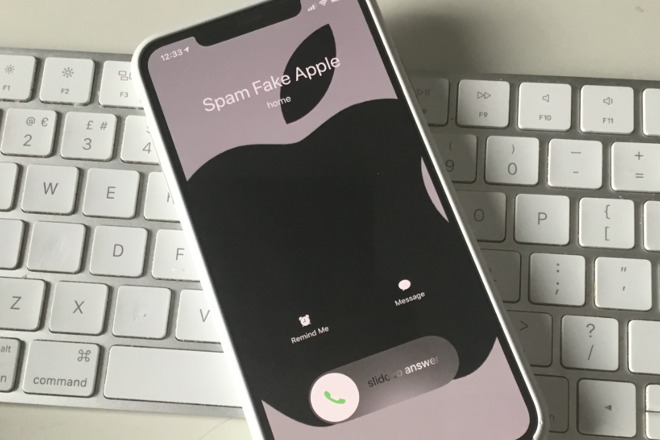The U.S. Federal Communications Commission on Thursday voted to adopt an expanded set of rules that will enable the agency to more vigorously pursue international robocallers and bad actors sending spoofed text messages.
An extension of the Truth in Caller ID Act of 2009, today's newly adopted set of regulations (PDF link) brings FCC oversight in line with powers outlined in the Ray Baum's Act in 2018.
Specifically, today's action expands the Truth in Caller ID Act to cover international calls and texts, with the FCC now able to prohibit caller ID spoofing in text messages, foreign robocalls and "additional types of voice calls" including one-way VoIP calls. Prior to the Ray Baum's Act, FCC jurisdiction was restricted to domestic callers using spoofing methods with an intent to defraud, the agency said.
Caller ID spoofing has become an increasingly prevalent annoyance in the U.S. and abroad. Malicious actors spoof, or purposely manipulate, their originating phone number to make it appear as though they are calling from a trusted corporation or entity. Recipients, lulled by a false sense of security, are left vulnerable to a variety of dangerous scams.
"Whether it's neighborhood spoofing, which makes it look like an incoming call is from a local number, or spoofing the number of a company or government agency that consumers know and trust, scammers continue to hide behind spoofed numbers to deceive and defraud American consumers out of money and personal information," FCC Chairman Ajit Pai said in a statement, as reported by CNET. "Today, we rely on new authority provided by Congress in Ray Baum's Act to update our rules to cover these additional forms of spoofing."
Today's vote is part of a wider effort to combat malicious spoofing and robocalling. In what is characterized as a "multi-pronged approach," the commission has urged service providers to institute an authenticated caller ID network dubbed SHAKEN/STIR, pushed carriers to offer standard robocall blocking services and authorized a central database in an effort to reduce calls to reassigned numbers.
Most recently, the U.S. House of Representatives last week passed the Stopping Bad Robocalls Act, which seeks to end spam phone calls by leveling business requirements on carriers and enhancing FCC authority over offenders.
Apple, too, is working on technology to thwart spam calls. When the company's iOS 13 operating system rolls out this fall, iPhone users will gain access to a Siri-powered feature that weeds out and silences calls from unknown numbers, sending them directly to voicemail.
 Mikey Campbell
Mikey Campbell







-m.jpg)






 William Gallagher
William Gallagher
 Wesley Hilliard
Wesley Hilliard

 Christine McKee
Christine McKee
 Malcolm Owen
Malcolm Owen

 Andrew Orr
Andrew Orr





-m.jpg)




9 Comments
While it's not perfect and not free (I think it's $35 per year) RoboKiller does a great job at weeding out most annoying calls, and as an added benefit it allows you to harass telemarketers by choosing among a wide variety of pre-recorded messages that sound like someone answering the phone -- these calls are recorded and you can listen to the recordings, and even share the best ones on the live channel that airs the best recordings.
This is a bit of a head scratcher...
That’s kind of like saying, we’re going to stop all cocaine sales in the USA but not cocaine sales originating from another county.
Or,
We’re going to outlaw online gambling, but only if the gambling server resides in the USA.
At least they fixed the “loophole” but why the loophole existed in the first place... I have no idea. Regulators must have been on cocaine when the wrote it up...
Won’t accomplish anything. Foreign spammers could care less about being prosecuted. Moreover the new rules only prohibit spoofing if it’s done with an intent to defraud, cause harm, etc, which will allow political calls, among other annoying calls.
All spoofing should be illegal.
Hiya works great.
Here is something that work against some: if you get calls about your friendly local duct cleaning company or solar panel installation, they’re referral services. They are contracted directly or indirectly by local businesses who pay to get leads.
On multiple occasions I have let them make an appointment for me and had the guy come to my house thinking he was going to make a sale, and I lectured him about how he was paying to irritate me and wasting his time with a bogus sales call was the only way for me to get his attention and get him to stop using that referral service.
RoboKiller is super efficient but on my work phone I have the free blocker provided by Verizon (Call Filter) and it’s useless.
Can’t beat the built-in telemarketer harasser in RoboKiller, too.